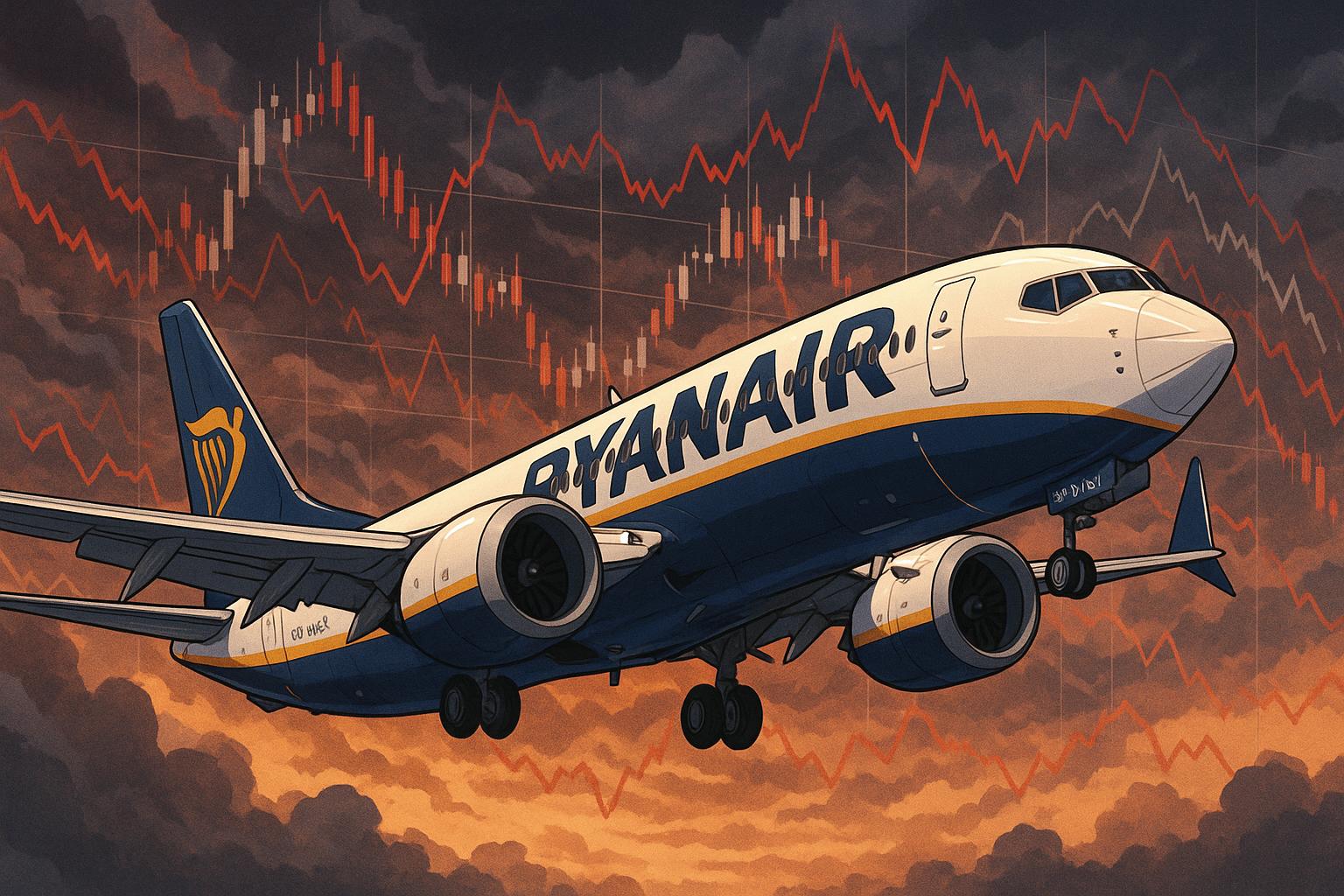Ryanair's financial landscape has become increasingly turbulent, with the airline reporting a significant 16% drop in pre-tax profits for the last fiscal year, ultimately totalling €1.78 billion (£1.5 billion). This decline follows the budget carrier's decision to reduce air fares in a bid to stimulate demand amidst changing market conditions. Average ticket prices fell by 7%, resulting in a surge of 200.2 million passengers, a year-on-year increase of 9%. However, the airline’s future growth expectations have dimmed, with anticipated growth of merely 3% in passenger numbers for the next fiscal year, due largely to postponed deliveries of Boeing aircraft.
In response to this challenging trajectory, Ryanair has announced plans to raise fares significantly over the coming months. The airline has flagged a price increase of mid-high teen percentages year-on-year during its first quarter, aiming to recover lost ground from the previous year’s fare reductions. CEO Michael O’Leary has stated, "While we cautiously expect to recover most but not all of last year’s 7% fare decline, which should lead to reasonable net profit growth in 2025-26, it is far too early to provide any meaningful guidance." This indicates a cautious optimism tempered by the recognition of external factors that could further impact profitability, including geopolitical tensions and macroeconomic challenges.
The prompt for this fare adjustment is compounded by delays in aircraft deliveries from Boeing, which have caused capacity constraints. The airline had initially hoped to receive 57 Boeing 737 Max 8200 aircraft by March, but only a fraction are expected in time for peak summer operations. Such delays not only restrict capacity but also have resulted in increased operational pressures, leading to fare hikes. O’Leary pointed out that summer bookings show promising signs, currently running about 1% ahead of last year, yet the reliability of these numbers is contingent upon overcoming looming supply chain issues.
Moreover, Ryanair faces a dual challenge with ongoing disputes with online travel agents that have affected fare structures and passenger acquisitions. This concern aligns with industry-wide trends where airlines are resetting their pricing strategies following prolonged periods of discounted fares aimed at reviving travel demand post-pandemic. Analysts note that while Ryanair’s share price has shown resilience, surpassing €21, the airline still navigates a precarious market landscape marked by trade tensions and potential tariff implications on aircraft supply.
O'Leary has emphasised the necessity of an agile pricing strategy, suggesting a willingness to alter fare levels in response to market pressures. This agility is viewed as crucial, particularly as consumer spending shifts and the travel market recuperates unevenly across the continent. Ryanair's long-term objective remains ambitious, targeting 300 million passengers annually by 2034, contingent on resolving current operational dilemmas and restoring growth momentum.
As pressure mounts from various fronts, including inflation in operational costs and greenhouse gas emissions regulations, the path ahead remains uncertain. However, if managed effectively, the anticipated recovery in air fares alongside buoyant summer travel could signal a pivotal point for Ryanair as it seeks to stabilise profits and reassess its growth trajectory.
Reference Map
- Paragraph 1: [1]
- Paragraph 2: [1], [2]
- Paragraph 3: [3], [4]
- Paragraph 4: [2], [3]
- Paragraph 5: [5], [6]
- Paragraph 6: [6], [7]
Source: Noah Wire Services
